Athens, a city steeped in some of the most significant historical events in Western history, is a place where the past and the present coexist in harmony. This enchanting city is a place where every street corner, temple, and ruin tells a story from a bygone era of ancient Greek mythology and legends, all of which remain relevant in today’s society. Exploring the modern city is only truly possible by understanding the roots anchoring it to the past. The legends and mythology of Ancient Greece therefore provide the guideposts for a modern day visit.
The Acropolis: Home to the Gods
Our journey through Athens begins atop the majestic Acropolis, a rocky hill serving as a sentinel overlooking the city. The Acropolis is not merely a collection of ancient ruins; it is a sanctuary dedicated to the gods of Olympus. Ascending the marble steps, it is almost possible to hear the whispers of Athena, the city's patron goddess, guiding us through the awe-inspiring Parthenon.
The Parthenon, an iconic temple dedicated to Athena, is a testament to ancient Greek architectural brilliance. Its intricate columns and stunning friezes depict scenes from Greek mythology. The east pediment, for example, showcases the birth of Athena, emerging fully grown and armored from the head of her father, Zeus, after he swallowed her mother, Metis. This mythological tale highlights Athena's wisdom and strength, attributes that defined Athens itself.
As we walk around the Parthenon, we come face to face with other gods and goddesses, each with their own legends. The imposing statue of Poseidon, god of the sea, stands as a reminder of his fierce rivalry with Athena. According to mythology, they competed for the patronage of the city, and Athena's gift of the olive tree ultimately won her favor. This tree, still abundant in Athens, symbolizes peace and prosperity.
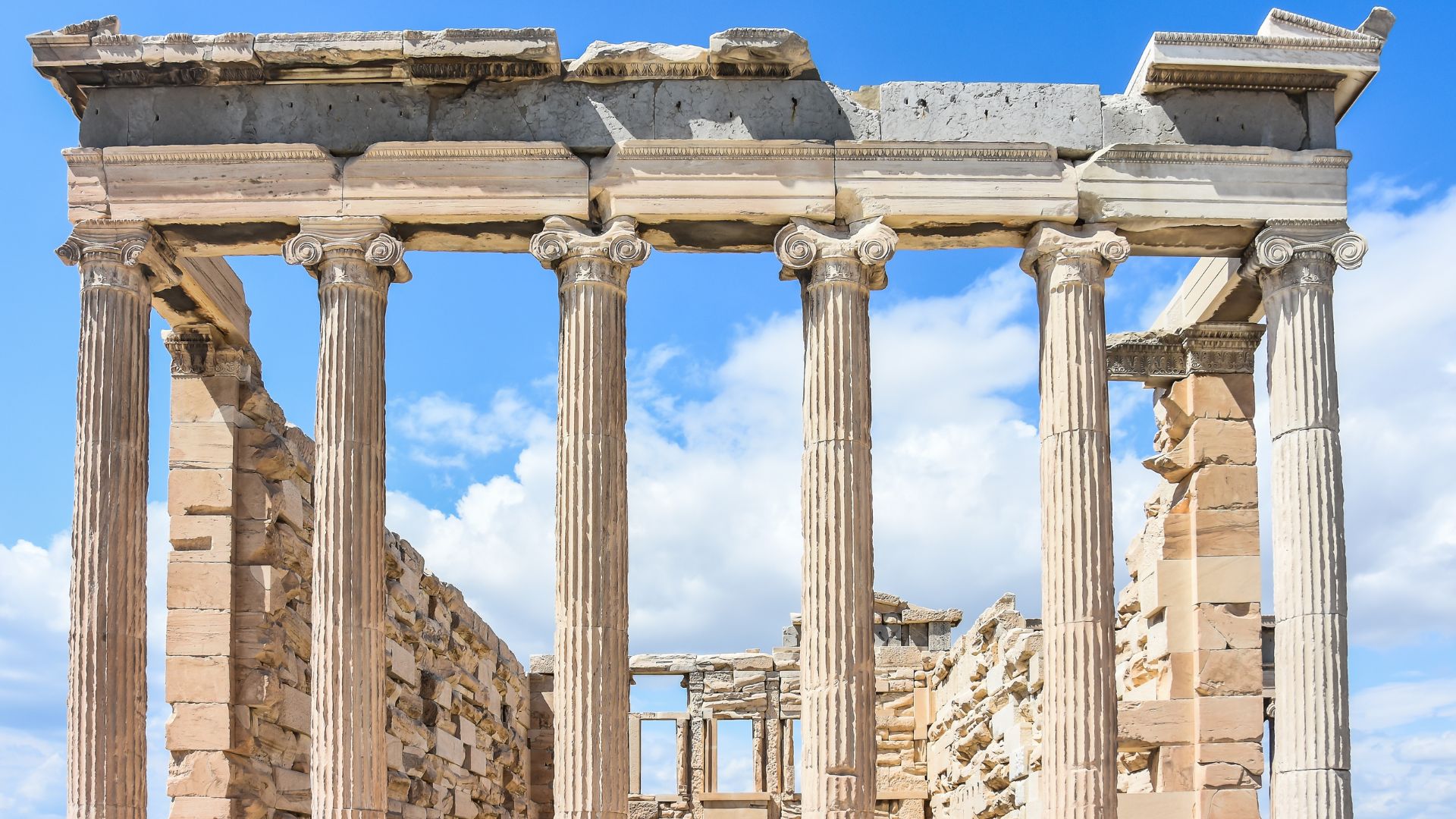
The Erechtheion: The Mystery of the Caryatids
Adjacent to the Parthenon lies the Erechtheion, a temple shrouded in mystery and home to the famous Caryatids. These six draped female figures, each supporting the temple's roof, have fascinated visitors for centuries. According to legend, they represent the women of Karyai, who were punished for betraying Athens to the Persians during the Greco-Persian Wars. Frozen in stone for eternity, they serve as a poignant reminder of loyalty and betrayal in Greek mythology.
Beneath the Erechtheion lies another intriguing feature—the sacred olive tree, which is said to be a direct descendant of the original olive tree gifted by Athena. This olive tree is a living testament to the enduring legacy of the goddess and her association with wisdom and peace.
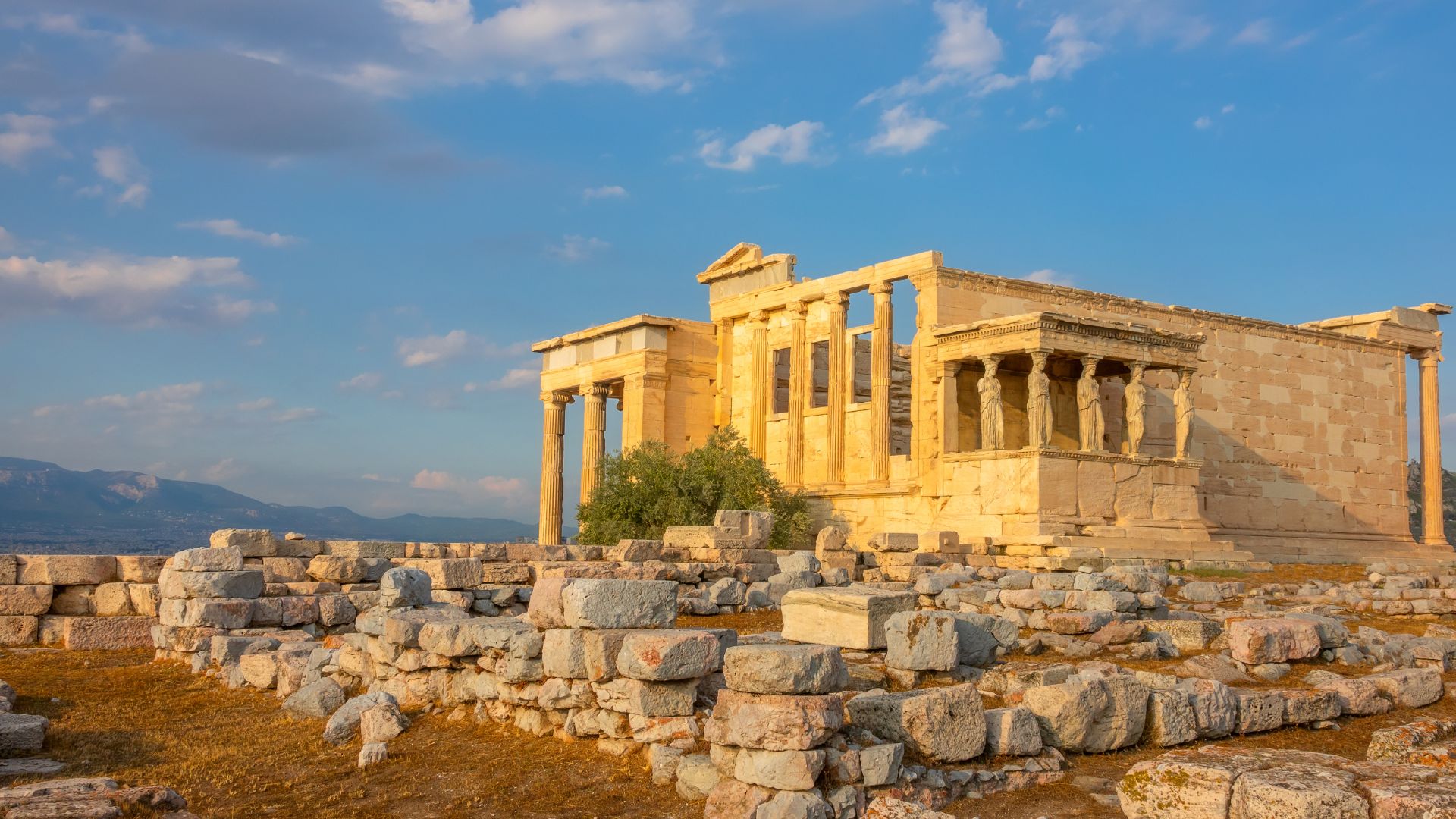
The Theatre of Dionysus: Where Legends Came to Life
Leaving the Acropolis, we descend to the Theatre of Dionysus, the birthplace of Greek drama. In this ancient amphitheater, audiences once witnessed the plays of legendary playwrights like Aeschylus, Sophocles, and Euripides. These dramatists drew inspiration from the rich tapestry of Greek mythology, creating timeless tragedies and comedies that explored the human condition, the whims of the gods, and the consequences of hubris.
Here, the myths of Oedipus, Antigone, and Medea came to life on the stage, leaving indelible marks on the collective imagination of the Greek people. The Theatre of Dionysus serves as a testament to the enduring power of storytelling and the profound influence of mythology on the arts.
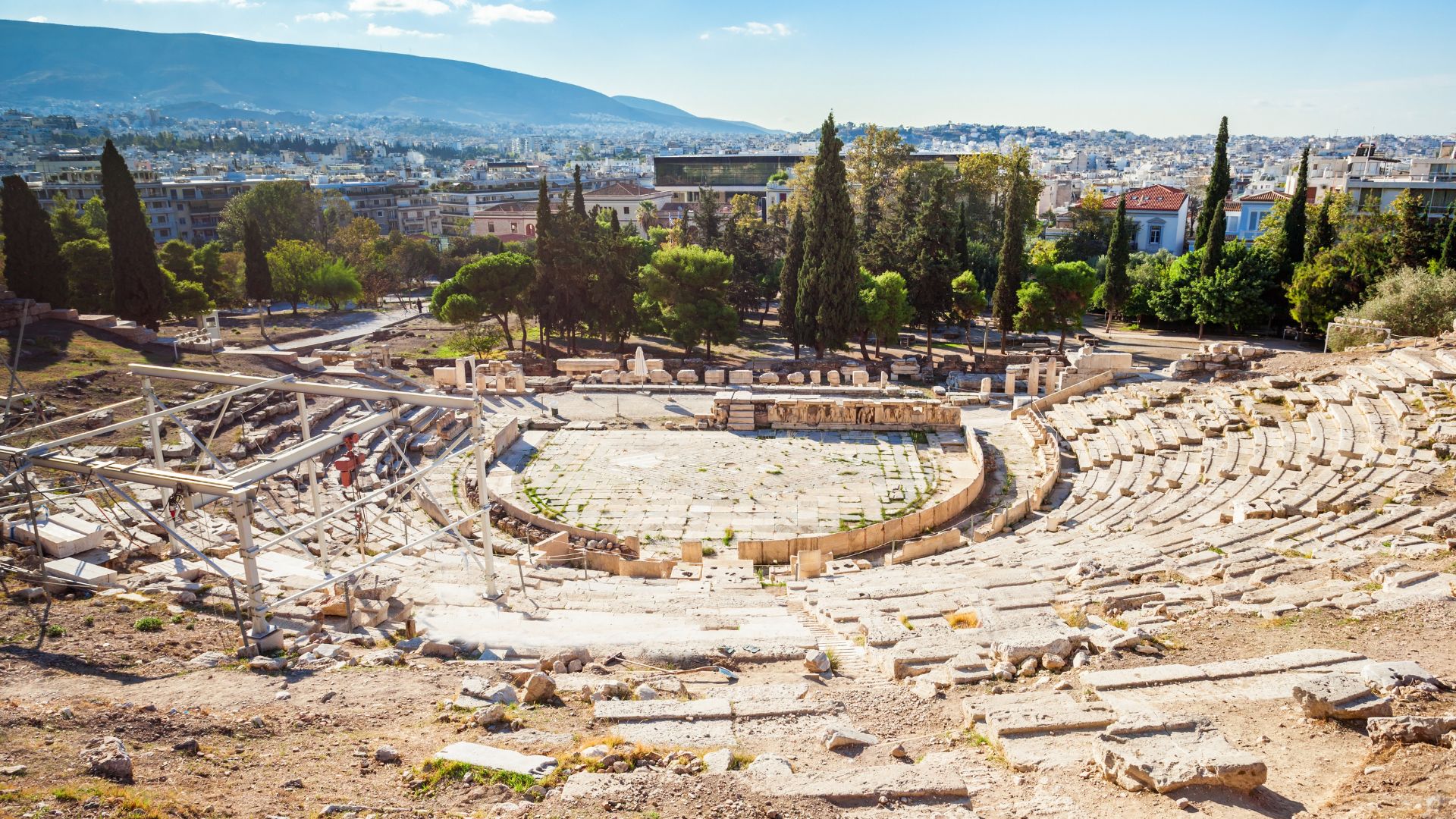
The Agora: A Marketplace of Ideas
Our journey through ancient Athens takes us to the Agora, the bustling marketplace that was the heart of the city's political and intellectual life. Here, philosophers like Socrates, Plato, and Aristotle engaged in spirited debates that shaped Western philosophy. These great thinkers often drew inspiration from the myths and legends that surrounded them, using them as allegorical tales to explore complex ideas about ethics, justice, and the human soul.
For Socrates, the story of the Oracle at Delphi, which declared him the wisest of all men because he alone knew how little he knew, served as a powerful allegory for the limits of human knowledge. Plato's allegory of the cave, found in his work "The Republic," drew upon the idea of enlightenment and the journey from ignorance to wisdom, much like the hero's journey in Greek mythology.

The Temple of Hephaestus: Forging Legends in Stone
As we continue our journey through Athens, we arrive at the Temple of Hephaestus, the god of blacksmiths and craftsmanship. This well-preserved Doric temple stands as a testament to the skilled craftsmanship of the ancient Greeks. Hephaestus, though not as well-known as some other Olympian gods, played a crucial role in Greek mythology. He was the one who forged the mighty weapons of the gods, including Zeus's thunderbolts and Achilles's armor.
The story of Hephaestus's tumultuous relationship with his mother, Hera, and his eventual marriage to Aphrodite, the goddess of love and beauty, is a captivating tale of love and desire. It reminds us that even the gods were not immune to the complexities of human emotions.
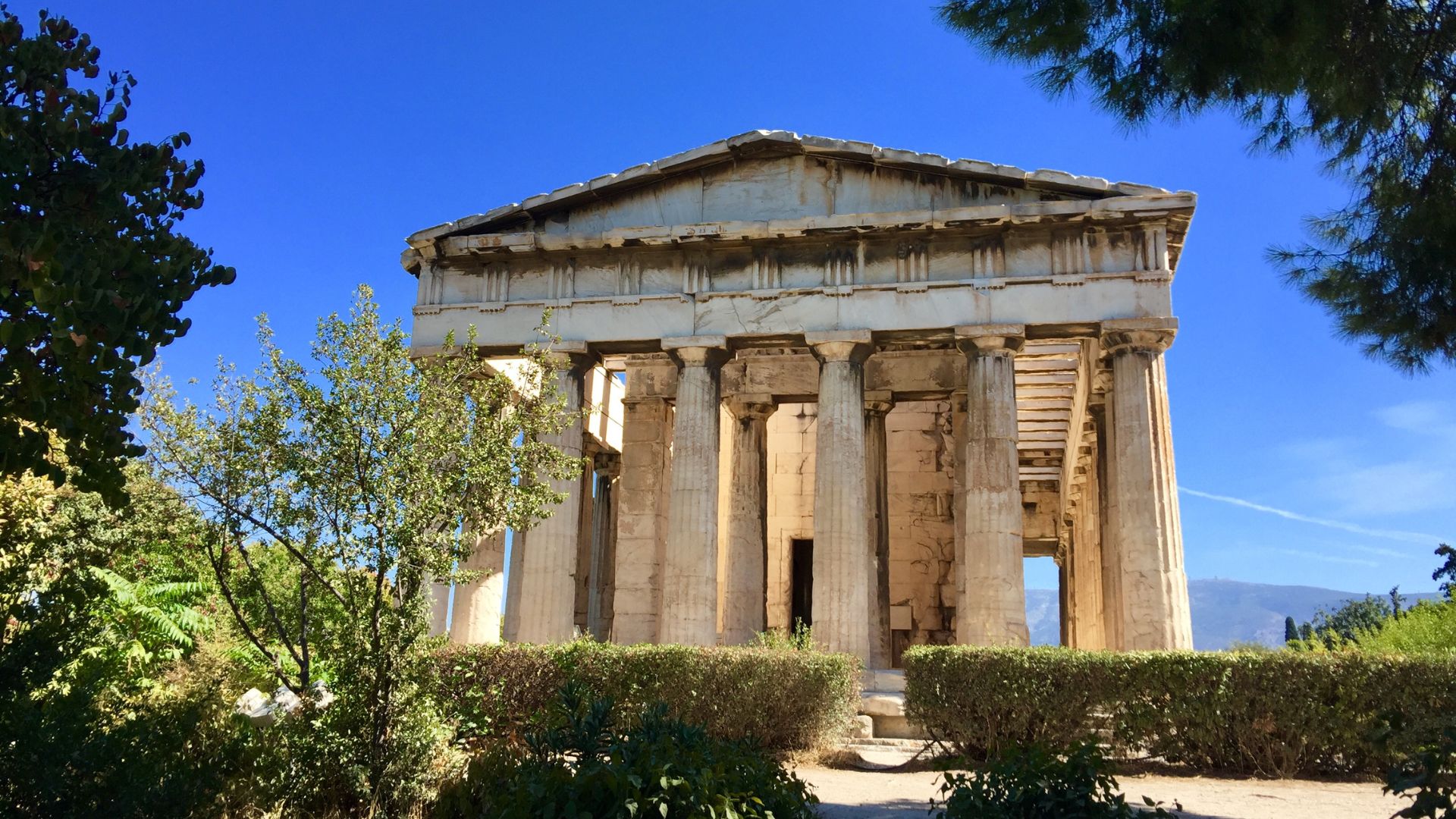
The Kerameikos: Gateway to the Underworld
Our journey through Athens would not be complete without a visit to the Kerameikos, the ancient cemetery of the city. In Greek mythology, the Kerameikos served as a symbolic gateway to the underworld, where the souls of the departed embarked on their final journey. Here, we encounter the legend of Orpheus and Eurydice, a tragic tale of love and loss.
Orpheus, a gifted musician, ventured into the underworld to rescue his beloved Eurydice, who had died from a snakebite. His hauntingly beautiful music moved even the cold-hearted Hades, who agreed to let Eurydice return to the world of the living. However, there was one condition: Orpheus must not look back at her until they had left the underworld. In a moment of doubt and longing, Orpheus glanced back, sealing Eurydice's fate.
The Kerameikos serves as a poignant reminder of the fragility of life and the enduring power of love and music in Greek mythology.
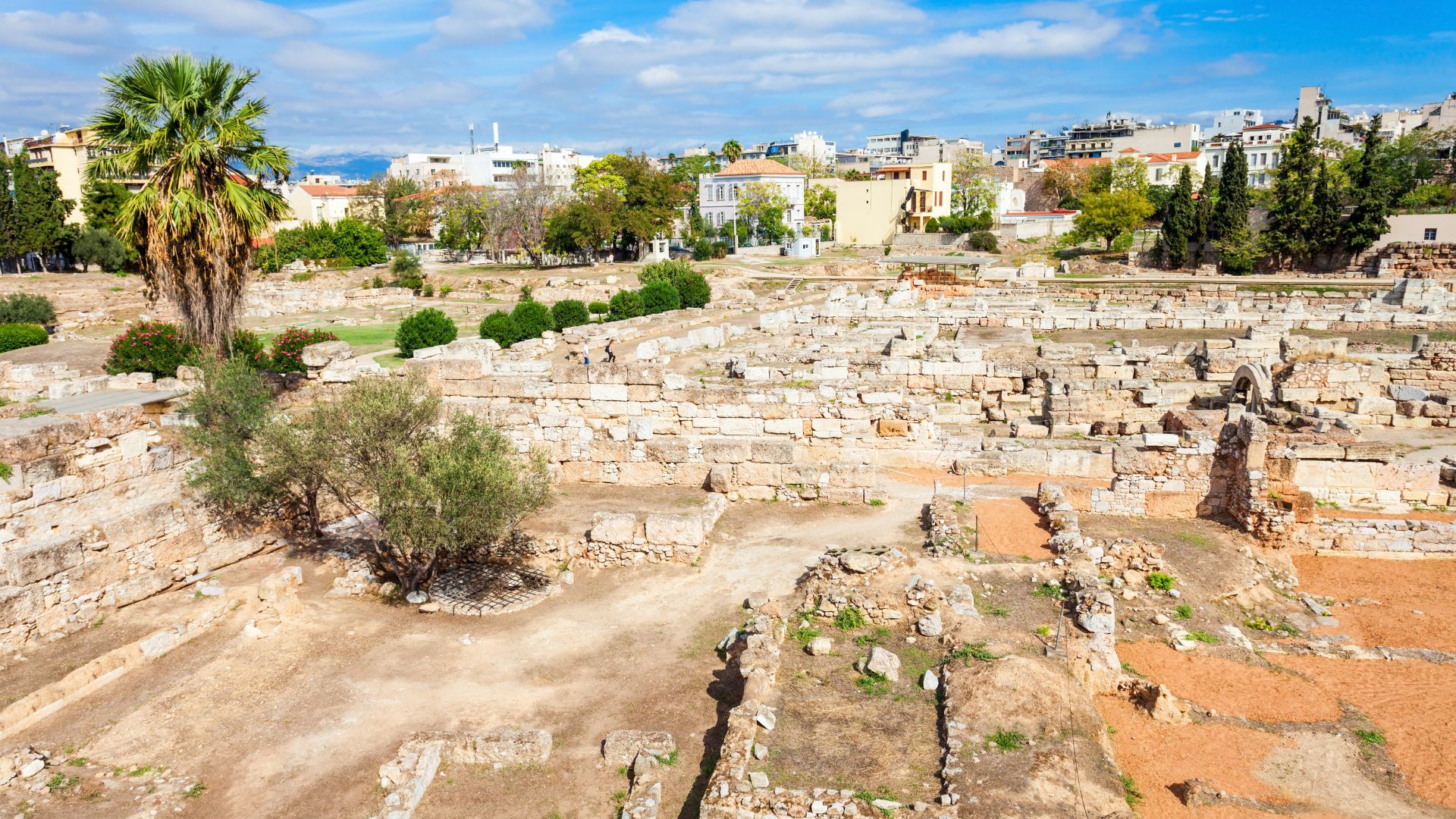
The National Archaeological Museum: A Treasure Trove of Mythology
Our journey through Athens culminates at the National Archaeological Museum, a repository of ancient artifacts that bring the myths and legends of Greece to life. Here, we can marvel at sculptures of gods and heroes, intricate pottery adorned with mythological scenes, and ancient texts that have preserved the stories of the past.
One of the museum's most iconic exhibits is the Antikythera Mechanism, an ancient analog computer that astounded archaeologists with its complexity. This remarkable artifact serves as a testament to the advanced knowledge and ingenuity of the ancient Greeks, who used their understanding of mathematics and astronomy to track celestial movements and navigate the seas—a skill that played a crucial role in the myths of heroes like Odysseus.
As we explore the museum's halls, we are reminded that the myths and legends of ancient Greece continue to captivate and inspire us today, offering timeless lessons about the human experience, the power of storytelling, and the enduring allure of the past.
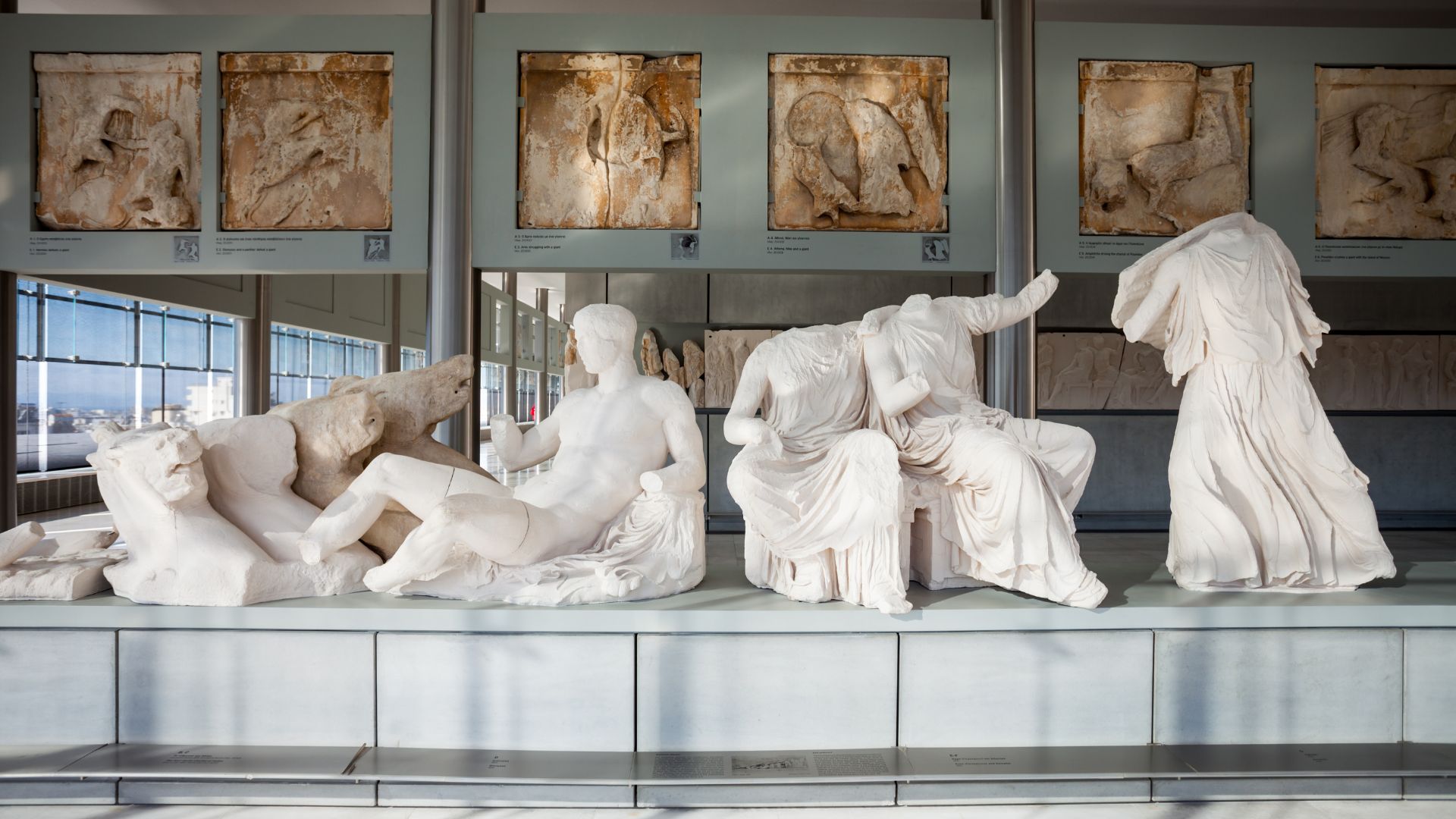
Athens, with its ancient ruins, temples, and archaeological treasures, offers a unique opportunity to time travel through the rich tapestry of Greek mythology and legends. From the Acropolis to the National Archaeological Museum, each site tells a story that has shaped the cultural and intellectual heritage of Western civilization.
At the conclusion of a visit to Athens, one is left with a profound appreciation for the enduring power of mythology and the ways in which it continues to shape our understanding of the world. The myths of gods, heroes, and monsters are not merely relics of the past; they are living narratives that continue to inspire and inform our lives today, reminding us of the timeless truths that connect us to the ancient world and to each other. Athens, a city where the past and the present coexist in harmony, invites us to embark on a journey through time, where the echoes of myth and legend still resonate in the heart of the modern world.
